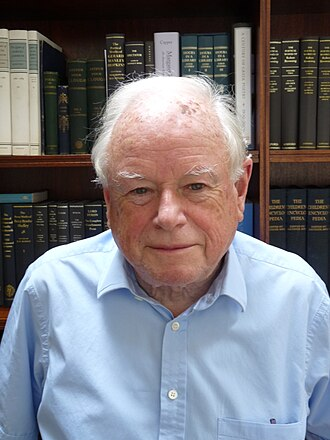Original Publication: 1998, Blackwell Publishers Ltd., Oxford, UK My Spanish Edition: 2005 (1st edition), 2006 (1st reprint), Paidós, Buenos Aires 496 pages Translated by Miguel Candel Cover design by Joan Batallé

Anthony Kenny (1931-), a professor of philosophy whose intellectual journey began with medieval scholastic philosophy and later continued with the tradition of linguistic analysis, was encouraged to produce a new book similar to Bertrand Russell’s famous History of Western Philosophy. Initially, the idea discouraged him due to the high regard in such Russell’s work is held, as well as Russell himself as a philosopher. However, he eventually considered there was room to contribute something of his own, since, according to Kenny, Russell had been unfair to some major philosophers—such as Aristotle and Kant—and because some of the assumptions underlying Russell’s philosophy have since come into question.
Thus, Kenny set himself the same target audience as Russell: a generally educated public without specific philosophical training. He also sought to emulate Russell’s stylistic clarity and vigor. Moreover, this book is not merely a summary of previous philosophers’ conclusions; Kenny explains the reasoning that led them to their conclusions and critiques them without arrogance.
Each chapter opens and closes with a bit of historical context, though this does not take up much space. He provides more background for the more distant past and progressively less as he moves toward the present. Similarly, he doesn’t dwell on the philosophers’ biographies, limiting himself to brief remarks, mainly as warm touches to ease the reading rather than to explain how their lives influenced their ideas or the consequences those ideas later had on them.
Although not strictly, there is a general trend for the chapters and subchapters to become shorter as the book progresses. This is due to the enormous influence of the ancient Greeks on Western philosophy, who take up nearly a quarter of the book. One can almost build a history of philosophy around whether various thinkers sided with or opposed specific Greek philosophers, given the breadth of subjects the latter covered.

The book primarily addresses epistemology, metaphysics, philosophy of mind, and ethics. This tetrad forms the central (or fourfold) axis of the work. However, it is not essential to read the book in chapter order: I personally enjoyed picking chapters based on whatever interested me at the time. For instance, the final chapter, The Philosophy of Wittgenstein, was one of the first I read.
Kenny explains his choice of this tetrad as follows: these are still fields in which philosophy retains a leading role, whereas other topics have come to be seen no longer as primarily philosophical but rather scientific. Kenny draws a distinction—based on the history of philosophy—according to which a subject remains within the philosophical domain as long as its concepts and methods remain controversial. (Although, in my opinion, his explanation ends up being a bit too dichotomous.) Once its problems and concepts are clearly stated and a consensus on methodology is reached, the subject becomes a science.
Final thoughts:
Due to his deep appreciation for Wittgenstein, Kenny struggles to see how language could have evolved through natural selection. In fact, Kenny’s great admiration for Wittgenstein is my only major "displeasure" (or point of disagreement) with the book. I don’t hold that poor neurotic in such high esteem (see my Youtube video or Substack article).
The parts that contributed most to my knowledge because they covered areas where I was least familiar were Chapter 6: Early Christian Philosophy; Chapter 7: The Early Middle Ages; Chapter 8: Thirteenth-Century Philosophy; Chapter 9: The Oxford Philosophers; and the curious Chapter 20: Three Modern Masters, which discusses Darwin, John Henry Newman, and Sigmund Freud.
Subjects I wish had been given more pages: Epicureanism and Stoicism. And subjects I wish had been included (they are entirely absent) the pragmatism of Charles Peirce and of William James.
Originally written in Spanish, translated with ChatGPT